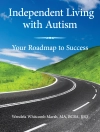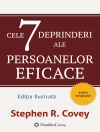Disability and Child Sexual Abuse examines the ways in which society marginalises, institutionalises and places disabled children in situations of unacceptable risk, and how – as evidenced in the survivors’ narratives – patterns of service delivery can contribute to the problem.
Based on the accounts of seven disabled individuals who were sexually abused in childhood, the book highlights a wide range of pertinent issues. Through case vignettes and empirical research, the authors ask practitioners to scrutinise their current professional practice, exploring participants’ experiences of hospitalisation, education systems and local authorities. They consider the issue of who abuses and why, and highlight issues relating to the complexities involved in revisiting past experiences and confronting unwarranted and unwanted feelings of responsibility. The difficulty of recounting the abuse narrative is also examined within the research context.
This book will be relevant for professionals and students in the social, health and education services, such as social workers, teachers and counsellors. It will also offer insights for those seeking a less disablist society, including disabled people themselves.
Tabela de Conteúdo
Introduction. 1. Seven Disabled People with Telling Stories. 2. Narrative and Enabling Stories of Child Abuse. 3. An Abusive Society? 4. The Double Whammy Effect. 5. Expressions and Survival of Pain. 6. Organizational Abuse. 7. Who Abuses and Why? 8. Collective Identities. 9. Narratives of the Narrative. 10. Conclusion: towards a Non-Abusive Society. References. Index
Sobre o autor
John Swain is Professor of Disability and Inclusion at Northumbria University, and has worked in Disability Studies for over 25 years.












